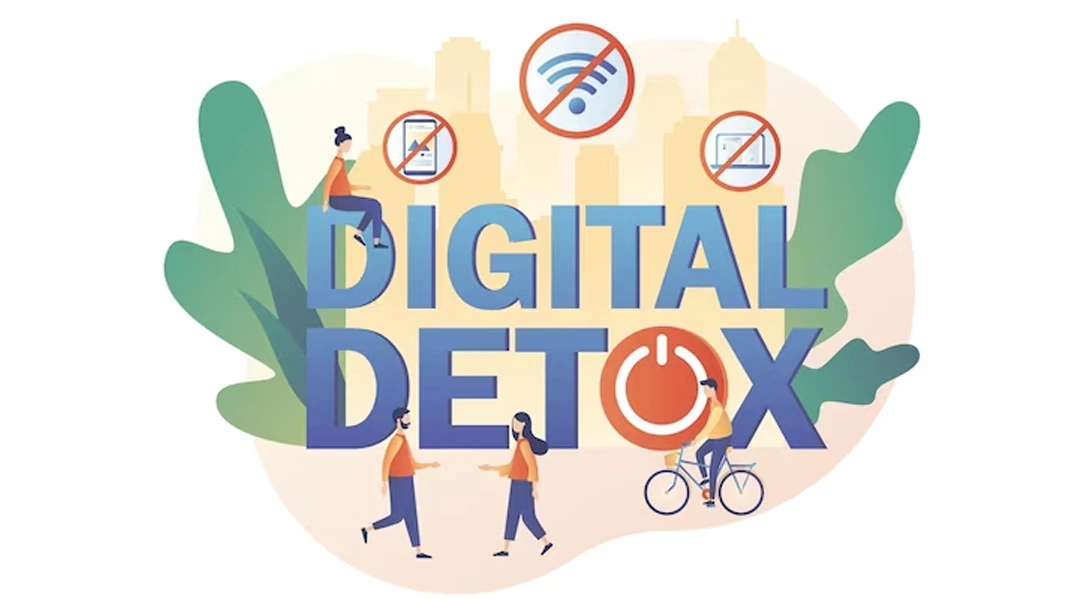A digital detox involves giving up technology for a certain amount of time, including social media, mobile devices, TVs, laptops, and tablets. It’s typical to conceive of “detoxing” from electronic devices as a way to focus on real-world social connections without distractions. People who temporarily give up their digital devices can reduce the stress that constant connectivity causes.
Before choosing whether or not a digital detox is right for you, consider some of the potential benefits and methods.
Reasons to do a Digital Detox
For many people, being online and totally immersed in the digital world is just a part of daily life. Yash Birla believes that it is essential that we do a digital detox once in a while for the benefit of our minds.
You might want to temporarily put down your phone and other electronic devices for a number of different reasons. You might wish to spend some time alone without the interruptions that your phone and other devices cause. You may also feel that your life is becoming too stressful as a result of your excessive usage of technology.
Even occasional sensations of technology addiction are possible. Despite the fact that DSM-5 does not technically recognise technology addiction as a condition, many experts concur that excessive use of tech and devices can result in social, psychological, and physical issues.
Signs You Might Need a Digital Detox
- If you can’t find your phone, you experience anxiety or tension.
- Every few minutes, you feel tempted to check your phone.
- After using social media, you experience feelings of depression, anxiety, or rage.
- You are fascinated with the number of likes, remarks, and reshares on your social media postings.
- You’re afraid that you’ll miss something if you don’t keep checking your device
- You often find yourself staying up late or getting up early to play on your phone
- You have trouble concentrating on one thing without having to check your phone
How to Do a Digital Detox
Yash Birla believes that it’s crucial to adjust your gadget use to your requirements and lifestyle, even if some could claim that a genuine digital detox would include a predefined stoppage from all digital interactions and social media links.
Your mental health can benefit from removing yourself from technology, but engaging in a digital detox doesn’t need total withdrawal from your phone and other electronic connections. Setting limits and ensuring that you are using your gadgets in a way that supports, rather than harms, your mental and physical health are frequently more important aspects of the process.
- Be Realistic
If you can entirely disconnect for a while, it could be something you want to try. Some individuals may find it freeing and reviving to be fully cut off. Many people may not be able to entirely give up all digital contact, especially if they absolutely need to keep connected for jobs, education, or other responsibilities.
This is not to say that you cannot benefit from a digital detox; the trick is to make unplugging a part of your daily routine and way of life.
If your employment requires you to use your gadgets all day, consider performing a mini-detox at the conclusion of the workday. Decide on a time when you want to switch off your gadgets, and then concentrate on having a night without using social media, texting, watching online videos, or engaging in any other technological distractions.
- Set Limits
While complete disconnection isn’t always possible or even desirable, placing boundaries on when these digital connections can encroach on your time can be beneficial for your mental health.
Setting your phone to aeroplane mode can prevent you from being interrupted by phone calls, texts, other messages, or app alerts while you are working out, for instance, if you wish to use it to play your Spotify or Apple Music playlist.
Setting restrictions on the kinds and times of connections you’ll attend can help you keep your real-world activities free from interruptions from the digital world.
Other circumstances in which you might want to restrict your use of digital devices include:
- When you consume meals, especially when you’re dining with others
- When you wake up or when you go to bed
- When pursuing a project or a hobby
- Whenever you are with friends or family.
- Each night before you go to sleep
It may be beneficial to limit your use of mobile devices right before bed. According to one evaluation of the literature, utilising media devices was associated with unsatisfactory sleep, insufficient sleep, and excessive daytime drowsiness. Instead of playing on your phone while lying in bed, consider spending some time reading a book or magazine before bed.
- Remove Distractions
Another way to start your digital detox is to disable push notifications on your phone. Every time you get a message, mention, or new post, several social media applications, including Facebook, Instagram, Twitter, Pinterest, and news websites, give you an alert.
Instead of visiting certain websites or apps every time a new article or post is published, schedule a specified time each day to monitor your messages or mentions. Then allocate a certain period of time, perhaps 20 or 30 minutes, to catching up and sending replies.
Try leaving your phone at home the next time you’re out to dinner with pals.
- Make It Work for You
A digital detox may be anything you want it to be and can take on a variety of forms. Yash Birla suggests that you can consider giving up social media, mobile devices, television, and other digital devices for a spell. In other situations, you might want to concentrate on limiting your usage of a single category of digital equipment, like your phone or game console.
Here are a few ideas you might wish to experiment with:
- A digital fast: Try putting away all of your electronic gadgets for a day or up to a week.
- Recurrent digital abstinence: Decide which day of the week you will be device-free.
- A specific detox: Focus on limiting your usage of the troublesome app, website, game, or digital tool if it consumes an excessive amount of your time.
- A social media detox: Concentrate on limiting or perhaps quitting using social media for a certain amount of time.
Digital Detox Tips
Giving up gadgets might be relatively straightforward for some people. Others will discover it to be far more difficult and, at times, even anxiety-inducing.
To ensure that your digital detox is more successful, you may take the following actions:
- Inform your loved ones that you are taking a digital detox and ask for their assistance and support.
- Find methods to divert yourself, and have backup plans available.
- To avoid temptation and quick access, remove social networking apps from your phone.
- When you are tempted to use your gadget, consider leaving the house and going somewhere else, such as to dinner with friends or for a stroll.
- To record your progress and record your reflections on the event, keep a diary.
A Word From Yash Birla
Going without a device can occasionally be uncomfortable and stressful. Without your phone and other modern conveniences, you can feel irritated, anxious, or even bored. It could be difficult, but it can be a beneficial experience that will help you better understand how you interact with your technology and teach you how to pay attention and be present in all of your other experiences and activities.








Leave A Comment